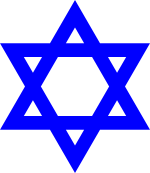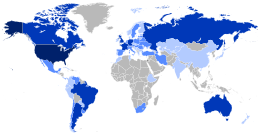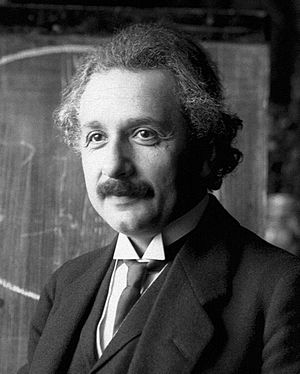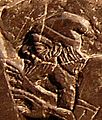Jew facts for kids
| יְהוּדִים (Yehudim) | |
|---|---|

The Star of David, a common symbol of the Jewish people
|
|
| Total population | |
| 14.6–17.8 million Enlarged population (includes full or partial Jewish ancestry): |
|
| Regions with significant populations | |
| Israel (including occupied territories) | 6,558,000–6,958,000 |
| United States | 5,700,000–10,000,000 |
| France | 453,000–600,000 |
| Canada | 391,000–550,000 |
| United Kingdom | 290,000–370,000 |
| Argentina | 180,000–330,000 |
| Russia | 172,000–440,000 |
| Germany | 116,000–225,000 |
| Australia | 113,000–140,000 |
| Brazil | 93,000–150,000 |
| South Africa | 69,000–80,000 |
| Ukraine | 50,000–140,000 |
| Hungary | 47,000–100,000 |
| Mexico | 40,000–50,000 |
| Netherlands | 30,000–52,000 |
| Belgium | 29,000–40,000 |
| Italy | 28,000–41,000 |
| Switzerland | 19,000–25,000 |
| Chile | 18,000–26,000 |
| Uruguay | 17,000–25,000 |
| Turkey | 15,000–21,000 |
| Sweden | 15,000–25,000 |
| Languages | |
| Religion | |
| Judaism | |
| Related ethnic groups | |
|
|
A Jew is someone who is part of the Jewish people or who has joined the Jewish religion. Jews see themselves as a group of people, not just followers of a religion. So, a Jew can be someone who practices Judaism or someone who has Jewish family roots.
Jewish people first came from the Middle East. According to traditional Jewish law, called Halakha, you are Jewish if your mother was Jewish or if you have converted to Judaism. Judaism is seen as a religion, a culture, a nation, and a big family.
Israel is the only country today where most people are Jewish. However, Jewish people live in many other places around the world. Most of them live in big cities in the United States, Argentina, Europe, and Australia. Both Israel and the U.S. have more than five million Jewish people.
Sadly, Jewish people have faced unfair treatment and harm throughout history. The most well-known example happened during World War II, when about six million Jews were killed by the Nazis. This terrible event is known as the Holocaust.
Contents
Jewish Groups Around the World
All Jewish people who are not converts have family roots from the Levant. This is the area now known as Israel and Palestine. Within the Jewish people, there are different Jewish groups.
Main Jewish Groups
The two largest groups are:
- Ashkenazi Jews: They historically lived in Central and Eastern Europe.
- Sephardic Jews: They historically lived around the Mediterranean Sea, especially in Spain and Portugal.
Jews from the Middle East, the Caucasus, and Central Asia are called Mizrahi Jews. There are also Ethiopian Jews, Indian Jews (called Bene Israel), and Chinese Jews (called Kaifeng Jews). Many of these groups have moved over time. For example, many Ashkenazi Jews now live in the United States, and many Sephardic and Mizrahi Jews live in France.
Jewish Languages
Jewish people often speak the languages of the countries where they live. Hebrew is the main language of Judaism because the Bible was written in it. It is still used for prayers. In Israel, a modern form of Hebrew called Ivrit is the common language. Some Jewish people also still speak and write other Jewish languages like Yiddish and Ladino.
A Look Back in History
Jewish holy writings say that Judaism began with a man named Abram. He lived in the city of Ur, which is in modern-day Iraq. According to Jewish stories, Abram believed that people in Ur were wrong to pray to many different gods and statues. He believed there was only one true God.
Abraham and the Beginnings
The Torah tells that God spoke to Abram and told him to leave Ur with his family. They moved to Canaan, where he started a new religion. God changed his name to Abraham. Jewish tradition also says that angels taught Abraham a new holy language, which is now known as Hebrew. Hebrew is still the language of Judaism. Abraham's grandson, Jacob, was the first to be called "Israel".
From Egypt to the Promised Land
Later, the Jewish people became slaves in Egypt. God told Moses to ask for the 12 tribes of Israel to be set free. The Pharaoh said "No" many times. Each time, God sent terrible punishments to the Egyptians. Finally, the Pharaoh let the Jewish people go. But then he sent his army to get them back. To help them escape, God made the Red Sea open a path for them. The waters then returned and drowned the Egyptian army. The Torah says that after this, Moses met with God on Mount Sinai. There, he received the Ten Commandments and the Torah from God.
The Kingdom of Israel and Exile
The Jewish people, or Israelites, formed a country called Israel in Canaan. They fought many wars against other groups in the area. The name Jew comes from one of these tribes, Judah. Later, Babylonia conquered Judah in the early 6th century BC. Its people were taken as captives to Babylon. They were allowed to return to Judah when the Persian Empire conquered Babylon. Some Jewish people stayed in Babylon (now Iraq), and others lived in different countries.
By 50 BC, Judah (then called Judea) was ruled by the Roman Empire. During this time, the main language in Judea was Aramaic. The Jewish people did not like the Roman government or their ways. In 70 AD, after a revolt, the Romans destroyed Judea's capital city, Jerusalem. They sent almost all Jewish people into exile.
The Diaspora and Life Around the World
After this, the Jewish people did not have their own country for a long time. They became a small group in almost every place they lived. This time is called the Diaspora. During the Diaspora, Jews spread around the world.
- Jews living in Spain and Portugal spoke Ladino.
- Jews in Germany, Poland, and Russia spoke Yiddish.
- Jews in North Africa spoke Judeo-Arabic or Haketia.
Jewish people have lived in many places, including India, China, Yemen, and Ethiopia. Even today, Jews who do not live in Israel are said to live "in the Diaspora." In some places, like India, Jews lived peacefully. In other places, like parts of Europe and Islamic countries, they faced bigotry or even hatred. They sometimes lived under unfair laws. They were sometimes forced to wear special clothes, pay higher taxes, or were not allowed to have certain jobs.
Challenges and Persecution
The word "antisemitism" describes the hatred for Jews. Because Jewish people have their own ways, like special rules about food, not working on the Shabbat, and keeping their own holidays, some people thought they were strange or dangerous. This led to unfair treatment and violence.
During the 1930s and 1940s, the Nazi government of Germany took control of most of Europe. They did terrible things to the Jewish people. The Nazi government killed more than six million Jewish people in terrible ways. This was the Holocaust.
The Modern State of Israel
In 1948, after World War II, the United Nations created the country of Israel for the Jewish people in Palestine. This is the same area as the original Israel in the Middle East. Many Jews had already started moving back to this land in the late 1800s. When Israel was created in 1948, about 600,000 Jews lived there. Today, there are about 6.9 million Jews in Israel.
When Jews moved back to Palestine, other people were already living there. Most of them did not want to live in a Jewish country. This was the start of the Israeli-Palestinian conflict, which continues today.
Jewish people have come to Israel from all over the world. They brought different languages, music, food, and history. This has created a unique culture. Israel is the only country where most people are Jewish and where Hebrew is the main language.
Jewish history continues today in both Israel and the Diaspora. Outside of Israel, many Jews live in the United States, Great Britain, Canada, France, Russia, Ukraine, Germany, Argentina, Brazil, South Africa, and Australia. Smaller numbers live in other parts of the world.
Some of the main challenges for Jewish people today include finding a solution to the Israeli-Palestinian conflict. Another challenge is dealing with some Jews losing touch with their Jewish identity in certain countries, like the United States.
Famous Jewish People
Many Jewish people have achieved great things in science, writing, business, and the arts. Some famous examples include:
- Lauren Bacall, actress
- David Ben-Gurion, Israeli politician
- Mel Brooks, movie director
- Noam Chomsky, American linguist and writer
- Jesus Christ, central figure of Christianity
- Aaron Copland, composer
- Bob Dylan, American singer
- Albert Einstein, scientist
- Anne Frank, diarist
- George Gershwin, composer
- Karl Marx, philosopher and father of Marxism
- Theodor Herzl, founder of modern Zionism
- Franz Kafka, writer
- Henry Kissinger, former American Secretary of State
- Emma Lazarus, author
- Sigmund Freud, scientist, father of psychoanalysis
- Marx Brothers, comedians
- Golda Meir, Israeli politician
- Benjamin Netanyahu, Israeli politician
- Shimon Peres, Israeli politician
- Philip Roth, American writer
- Mark Rothko, American painter
- Steven Spielberg, movie director
- Baruch Spinoza, philosopher
- Mark Spitz, swimmer
- Barbra Streisand, singer and actress
- Larry David, actor, producer
- Jerry Seinfeld, comedian
- Andy Samberg, comedian
- Natalie Portman, actress
- Adam Sandler, actor
- Drake, rapper
- Rick Rubin, American record producer
- Bernie Sanders, United States Senator
- Jon Stewart, American Comedian
- Maimonides, Jewish philosopher
Images for kids
-
Map of Canaan
-
A picture of King Jehu from the northern Kingdom of Israel, found on an ancient stone monument. This is the only known ancient image of an Israelite or Judean king.
-
The tombstone of the Maharal in the Old Jewish Cemetery, Prague. The words on the tombstones are in Hebrew.
-
Ashkenazi Jews in Eastern Europe in the late 1800s, shown praying in a synagogue on Yom Kippur.
-
New York City has 1.1 million Jewish people, making it the largest Jewish community outside of Israel.
-
Jewish people in Jerusalem, Israel.
-
A Rosh Hashanah greeting card from the early 1900s. It shows Russian Jews looking towards American relatives who are inviting them to the United States. Over two million Jews left the pogroms (violent attacks) in the Russian Empire to find safety in the U.S. between 1881 and 1924.
-
A menorah (a candelabrum) in the main square of Birobidzhan. About 70,000 Jews live in Siberia.
-
A World War I poster showing a soldier freeing a Jewish man, who then says he wants to help free others.
-
Jewish people in Minsk in 1941. Before World War II, about 40% of the city's population was Jewish. By the time the Red Army took the city back in 1944, only a few Jewish people had survived.
-
Praying at the Western Wall in Jerusalem.
See also
 In Spanish: Pueblo judío para niños
In Spanish: Pueblo judío para niños





















